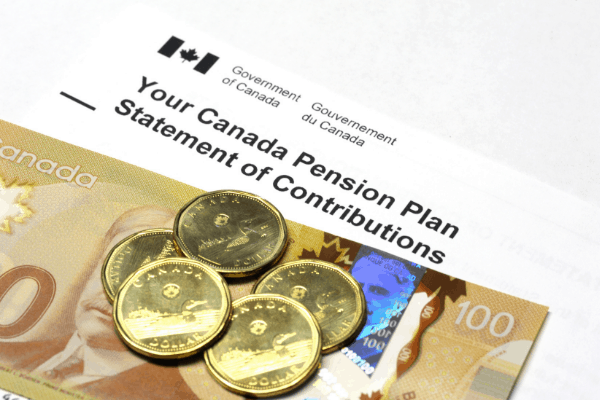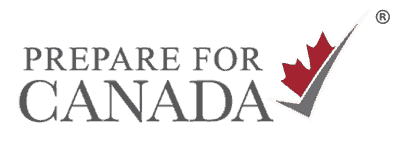BANKING & FINANCE
Pay deduction in Canada | Your net pay and & gross pay
by | Oct 15, 2024

Pay deductions can often be confusing and can come as an unpleasant surprise if you weren’t expecting them. Canadian workers have quite a few pay deductions that you should be aware of. Some of these are mandatory, like taxes, while others are voluntary, like union dues. These deductions make the difference between net pay and gross pay. Many pay deductions are there to help you in the future. However, you won’t be able to take advantage of the extra money if you do not know where it is and how you can access it.
Getting your first job in Canada
After you accept a job in Canada, you will receive a job offer letter. This is an exciting time! Your offer letter, also known as an employment letter, will include:
- Annual pay
- Method of payment and how often you will be paid
- Work schedule
- Job description and duties
- Workplace rules and policies
- Other employment conditions such as benefits and commissions.
The amount of money that is shown in the letter will not be the same amount that you will receive. This is because the amount on the letter is your gross pay.
Understanding net pay and gross pay
Understanding the difference between net pay and gross pay is important to make sure you put your money to the best use. Fortunately, net pay and gross pay are quite easy to understand
Gross pay: the money your employer pays you before mandatory and voluntary deductions.
Net pay: the amount of money you receive after deductions.
Each time your employer pays you, they must deduct a certain amount of money from your paycheck. The amount of money they deduct depends on a few factors such as:
- The province you live in (each province has its own income tax rate)
- What type of job you have
- How much you are payed
- What programs you are part of (pension plans, Unions, etc.)
However, when an employer tells you how much you are going to be paid they are talking about gross pay. Gross pay is your pay before deductions. It is not actually what you are going to receive. Your gross pay also includes things like bonuses, commissions, and overtime pay.
From your gross pay, your employer must make some deductions. The main deductions you will see on every pay stub are:
- Taxes
- Canada Pension Plan (CPP) and
- Employment Insurance (EI).
These deductions are not completely lost, however. Taxes go towards providing many public and social services in Canada. CPP and EI will also benefit you in the future when you retire or in case you lose your job.
After all the deductions have been made, the remaining money is now your net pay. This is the amount of money you will be taking home. It is important not to confuse your gross pay and net pay because you need to budget the money you will receive, not your gross pay.
Your pay stub, or the letter you will receive with every pay, will have both your gross pay and your net pay. Your gross pay is usually listed at the top of the pay stub, followed by any deductions. At the bottom, you will find your net pay. This is the amount of money you will receive for that payment term.
Now let’s take a deeper look at different types of pay deductions, what they are for, and how they affect your pay stub.
Voluntary pay deductions and net pay and gross pay
Your employer must deduct any voluntary pay deductions before they deduct any income tax. These deductions will effect your net pay. Some examples of voluntary deductions include:
- Union dues
- Uniforms, Meals, Equipment (anything you buy from your workplace)
- Automated deposits that you set up with your bank.
Not every paycheque will have these deductions because you will choose whether or not you want them. Whenever you buy anything from your workplace, you will either have to pay on the spot, or that same amount will be deducted from your pay. If you are part of a trade union, your union dues will also be deducted from your paycheck.
Any automated deposits you have arranged will also be deducted from your paycheck at this point.
These automated deposits could be linked to your savings account or they could be automatic contributions to a Registered Retirement Savings Plan (RRSP),
Depending on your job, you could also have other deductions as well. Make sure to read to your pay stub each month and look to see if the right amount of money has been deducted from it. If you see a deduction that you don’t recognize, be sure to talk to your employer about it.
Keep in mind that this money is not taxable income. Only after these deductions have been made can your income be taxed.
Arrive in Canada Financially Prepared
Building a strong financial foundation is vital to your success. Join this webinar to start your banking journey in Canada on the right foot!

Mandatory pay deductions from your gross pay
Income Tax
Once all the voluntary pay deductions have been made, the remaining money is now taxable income. The government will take a bit of your taxable income as income tax. Income tax goes to both the provincial government and the federal government. The government uses this money to invest in things like education, healthcare, and infrastructure.
Employment Insurance (EI)
Another deduction that is made from your taxable income is EI. As the name suggests, this deduction is there to give you financial support in case you lose your job. EI provides a temporary income to workers while they are forced to leave their job. Some reasons for this could include illness, taking care of another family member, or upgrading your skills.
To learn more about EI and how it works, click here.
Canada Pension Plan (CPP)
Another mandatory pay deduction you will see on your pay stub, each payment term is for CPP. This deduction ensures that you have some financial support after you retire. CPP functions to replace some of your current income to be given back to you when you retire. Of course, the more you contribute towards CPP, the more pension you will receive after you retire.
Another way to get more pension after retirement is to work longer. The earlier you retire, the less pension you will receive each month. So to receive more pension, you can retire later. The standard age of retirement is 65. However, you can retire as soon as 60 and as late as 70. As you may have guessed, retiring at age 70 will give you a lot more pension compared to retiring at age 60.
To learn more about CPP, click here.

Payroll deductions can help you be more financially secure
As you can see, many payroll deductions are there to help you save for the future. However, you can take things further by adding a few more deductions to your pay, each payment term. I know it might be tempting to get your hands on all of your money each paycheck. But, it’s wise to put some aside for the future.
A good way to save for the future is to set up automated deposits into your savings account or a Registered Retirement Savings Plan (RRSP). These automatic deposits contribute a portion of your paycheck into whatever account you want them to.
Saving for your future in Canada
You can refer to the 50/30/20 budgeting rule if you’re unsure about how to budget your money. The rule recommends that you put at least 20% of your pay towards savings. This way, you will have most of your pay for fixed expenses and entertainment while building savings over time.
If you plan to pay for your child’s post-secondary education, you can also open a Registered Education Savings Plan (RESP). An RESP is a great way to save for post-secondary education because the government will also contribute money to your RESP for every dollar you contribute. You can set up another automated deposit for this.
The best financial advice is to stick to a budget and automated pay deductions are no exception. Make sure you have divided your money the right way and have enough to pay for basic expenses before you set up any automated deposits. However, it may be wiser to make manual deposits if your income isn’t very reliable or if you are on a low income.
Knowing where all your deductions go will help you take advantage of all the financial resources that are available to you. The more financially literate you are when it comes to payroll deductions, the more you will be able to benefit from them.
Want to learn more about your financial first steps in Canada? Visit our Banking in Canada resource page! Get the essential information you need to manage your finances in Canada!
Related articles
Read more about your financial first steps in Canada.





